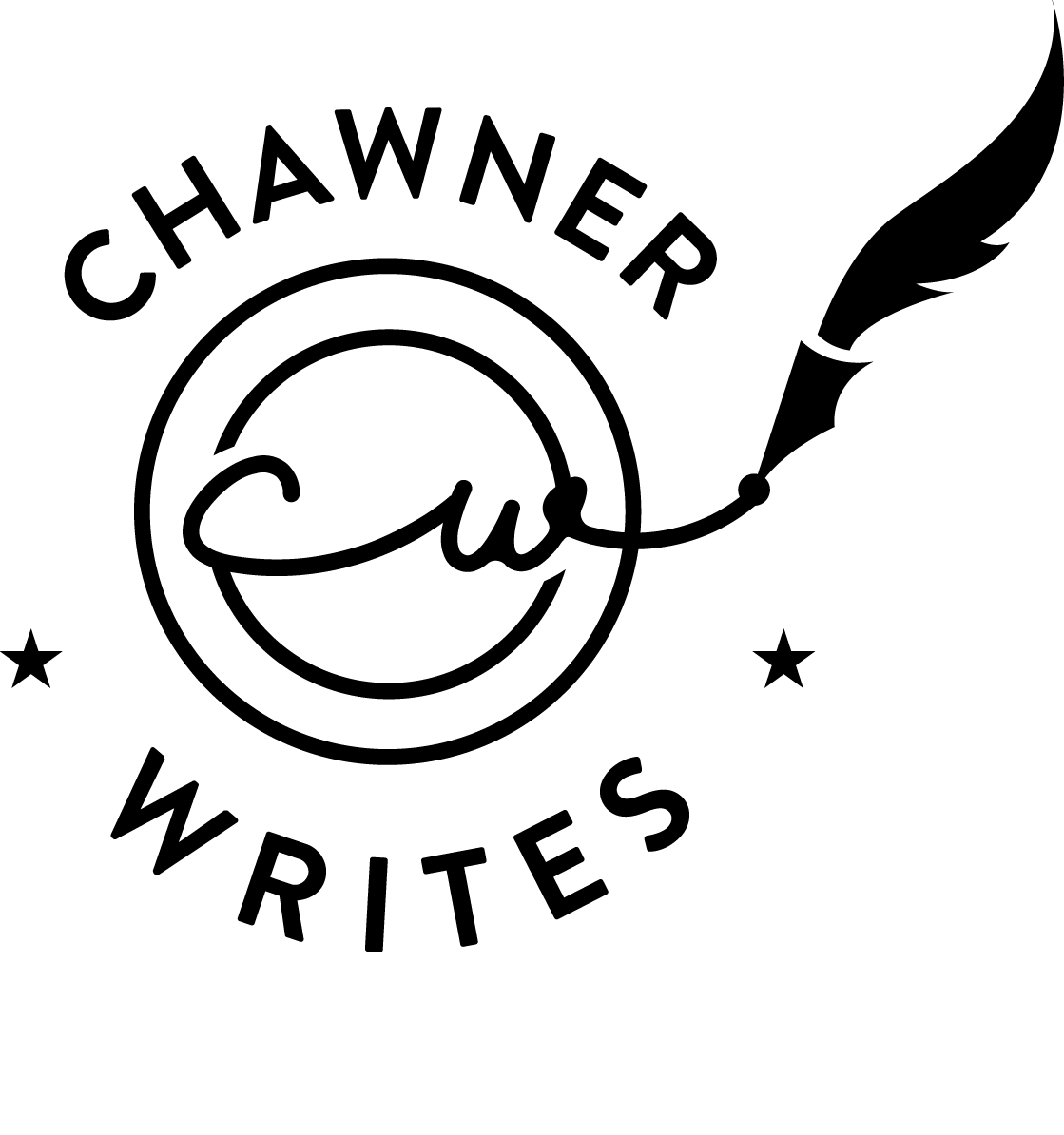
- Book Review: The Way
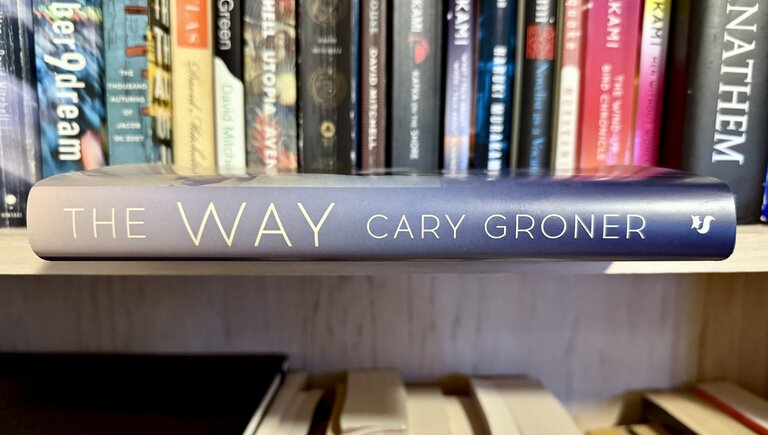
The Way Recently, I’ve read several newly released post-apocalyptic novels, including The Ancients, Annihilation, and The Way by Cary Groner. The Way good read; a page-turning blend of familiar genre elements with original twists.
The novel follows Will Collins as he travels across the American Southwest, a region devastated by pandemics and the collapse of organized society. His companions are a raven and a cat… and he can speak with both. Early in the story, we learn that Will is attempting to reach California to deliver a potential cure for the pandemic.
One of the highest compliments I can give a novel is to describe it as a page-turner. While The Way doesn’t rely on the formulaic pacing of thrillers like The Da Vinci Code, I found it difficult to put down — particularly in the early chapters. Groner’s prose is immersive, drawing the reader into Will’s world. Ironically, as the plot escalates and the stakes increase, the narrative becomes somewhat less compelling. The quieter moments are more engaging than the action-driven sequences.
Two elements, in particular, set The Way apart:
Communication with Animals
Will’s ability to speak with animals lends a surreal-ness to the story. Rather than serving as a mere gimmick, the animal companions become fully realized characters. Their presence creates a sense of companionship within the traveling group, which evolves over time to include others — each with distinct roles and skills.
Integration of Buddhism
Will’s identity as a practicing Buddhist is central to both his character and the novel’s themes. Groner integrates Buddhist philosophy throughout the story, not as background detail, but as a structural and moral framework. Will’s commitment to nonviolence becomes his defining flaw — a significant challenge when survival requires force.
Like most post-apocalyptic fiction, The Way relies on certain well-established conventions:
• Landscape of decaying infrastructure and societal ruins
• Small band of survivors traveling toward a distant goal
• “The Cure” that may save humanity
• Safe, untouched house offering respiteMinor Critiques
A few plot elements are just too convenient. The talking raven, while a fun character, provides very helpful aerial and interspecies intelligence. A young girl with expert marksmanship conveniently joins the group just as Will’s pacifism becomes a liability. At one point, the group repairs a locomotive despite lacking any relevant expertise.
The Way is a strong post-apocalyptic novel. It is thoughtful, well-written, and unique its use of classic genre elements and the unique additions of interspecies communication and Buddhism. Recommended.
- Book Review: Slow Horses
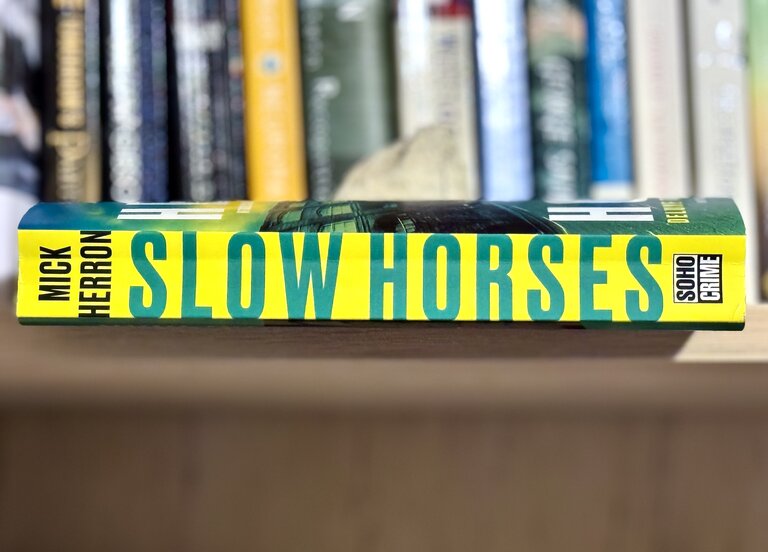
Slow Horses I watched Slow Horses when it was first released on Apple TV+. It quickly became one of my favorite streaming series. Great cast, interesting characters, and English spy craft. The series is based on Nick Herron’s series Slough House (rhymes with cow).
I heard his books described as a modern Le Carre so I avoided them… I find Le Carre slow. I could never become invested in the story or the characters. Oddly, though, I liked many of the movies or series based on Le Carre novels, such as Tinker, Tailor, Spy, and A Most Wanted Man. I tried Slough House and read along while re-watching.
Each 6-episode season is based on one book; the first season is Slow Horses. I’d read to a point, then catch up with the series. I’d never done this before; usually I’ll watch the movie or series after finishing the book.
The first 4 episodes are almost beat-by-beat from the novel. It was fun hearing the exact lines taken from the book, especially from Lamb (SH is an ensemble, but Gary Oldman as Lamb is the star). The minor changes jump out, like Ho (the techie) not wearing glasses or living in a different house. And makes me wonder why they made these slight changes.
The series drifts from the book over the last two episodes; the plot around the kidnappers is very different. They add time with the kidnappers and the victim.
This is my main criticism of the book (lesser, as Herron only spends a few pages with the kidnappers) and series; the “bad guys” aren’t interesting. The genuine conflict in SH is between the members of Slough House themselves (who treat each other delightfully horribly), Jackson Lamb vs his own team, and Slough House vs the main MI5. Any time spent away from the central characters appears an un-necessary distraction. And the main kidnapper/bad guy in the series is cartoonishly evil and unrealistic.
The show runners for the series could have handled the kidnapping in the abstract by using news reports, intel, and keeping the camera with the main characters. It felt like they didn’t trust the viewer enough.
Other aspects of reading while watching were interesting. Namely, as a reader, I didn’t have to conjure pictures of locations (the notable Slough House or the starkly contrasted MI5), how the characters looker or spoke, or even the general vibe. I would have come up with a slightly different take on River Cartwright… I would have had him more serious, while Jack Lowden plays him with a lighter touch.
Slow Horses is a good read, far better than any Le Carre I’ve ever attempted. I want to read and rewatch with the other two novels, and contrast the experience to reading one that hasn’t been turned into a season. Herron’s writing is a perfect combination of smart, literature-esque, strong characters but with a strong plot that moves. Highly recommended.
- Book Review: Everybody Behaves Badly
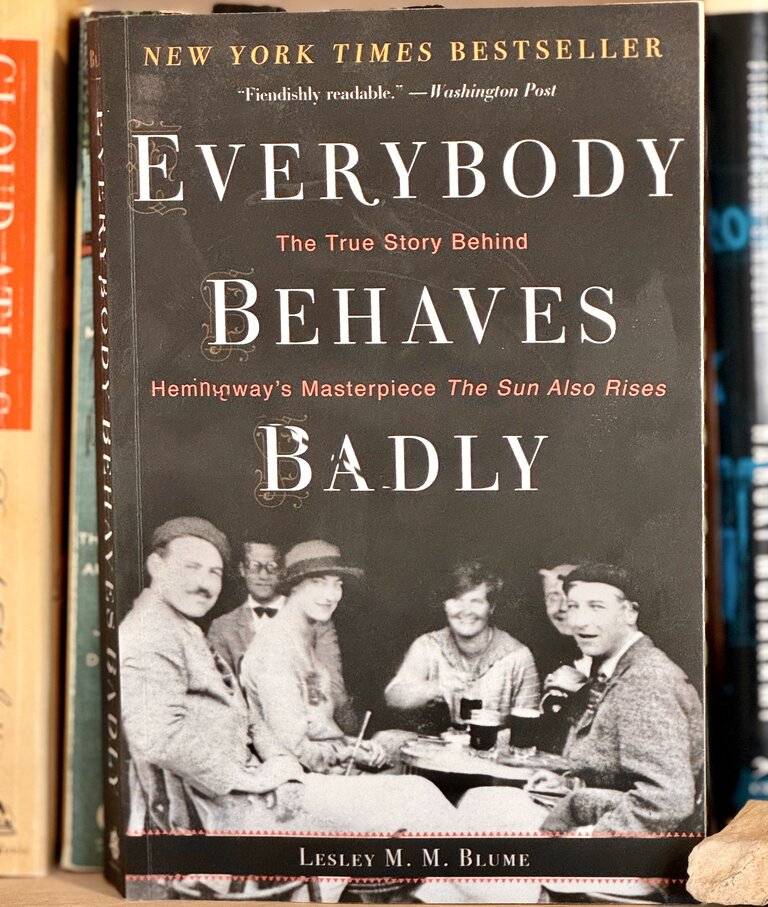
Behaved_Badly Readers of the blog know I am a Hemingway fan. I read The Sun Also Rises during my junior year in high school along with The Great Gatsby and Huck Finn. The Sun Also Rises was the rare book I loved upon first reading and have re-read it four or five times since high school.
Everybody Behaves Badly by Lesley M. M. Blume is the story behind The Sun Also Rises. This book was featured on One True Sentence podcast in 2020 and went into my Amazon wishlist. And there it sat until Ryan Holiday included it on his November 2023 book list. Seemed like the universe was trying to tell me something, so I picked it up… although I was still wary.
I read a similar book, The Undoing Project, which provides the backstory to the writing and authors behind Thinking Fast and Slow. Everybody Behaves Badly is a much better, more interesting read and highly recommended.
Blume tells the story of Hemingway in Paris in the 1920s, from his background as an unknown writer who schmoozed his way into the (already) famous literary scene in Paris. Here we meet so many of the people Hemingway would use as characters in The Sun Also Rises, from Robert Cohn to Lady Brett Ashley. We get enough of Hemingway’s background to understand who he was, but not an exhaustive biography.
More importantly, we get an account of Hemingway’s’ trips to Pamplona and the bullfights, especially the trip in 1924 with Harold Loeb (portrayed as Robert Cohn), Lady Duff Twysden (Lady Brett Ashley), Pat Guthrie (Mike Campbell) and Donald Stewart (Bill Gorton). The Sun Also Rises is a retelling of this trip, with the characters and events only slightly altered. One of the great revelations of Everybody Behaves Badly was how close to a straight travel story The Sun Also Rises, a beat by beat retelling of events.
This covers about 2/3 of the book. The final third describes life for Hemingway during and immediately after the publishing of The Sun Also Rises, which made him an internationally famous author (his goal). The epilogue details the lives of the characters/real friends (that word is doing a lot of work here) after the publishing. Amazing to see how much their inclusion in The Sun Also Rises affected their lives for the worse.
I tried to co-read The Sun Also Rises with Behaves… I’d read along while learning about the circumstances around the writing. A shocking thing happened, though… while I truly enjoyed Everybody Behaves Badly, The Sun Also Rises read very slow, especially to start. I’m not taking The Sun Also Rises out of my pantheon of favorite/best books… I wonder if I was just in a rush to get to the bullfights, and also to start other fiction novels stacking up on my to-read pile (an unread David Mitchell and two William Goldman books). But I couldn’t finish it… felt like Jake Barnes spent seventy pages aimlessly drinking in Paris (at the bars and restaurants Hemingway frequented, of course).
Behaves is a fun and easy read. Blume shows us where and how The Sun Also Rises events, places and characters originated. The Sun Also Rises is still one of the best novels of all time, although my journey over the last few years (reading a ton of short stories, including most of Hemingway’s) tilts me toward his short stories instead of his novels… a complete 180 as per my thoughts a few years ago.
- Book Review: Holly
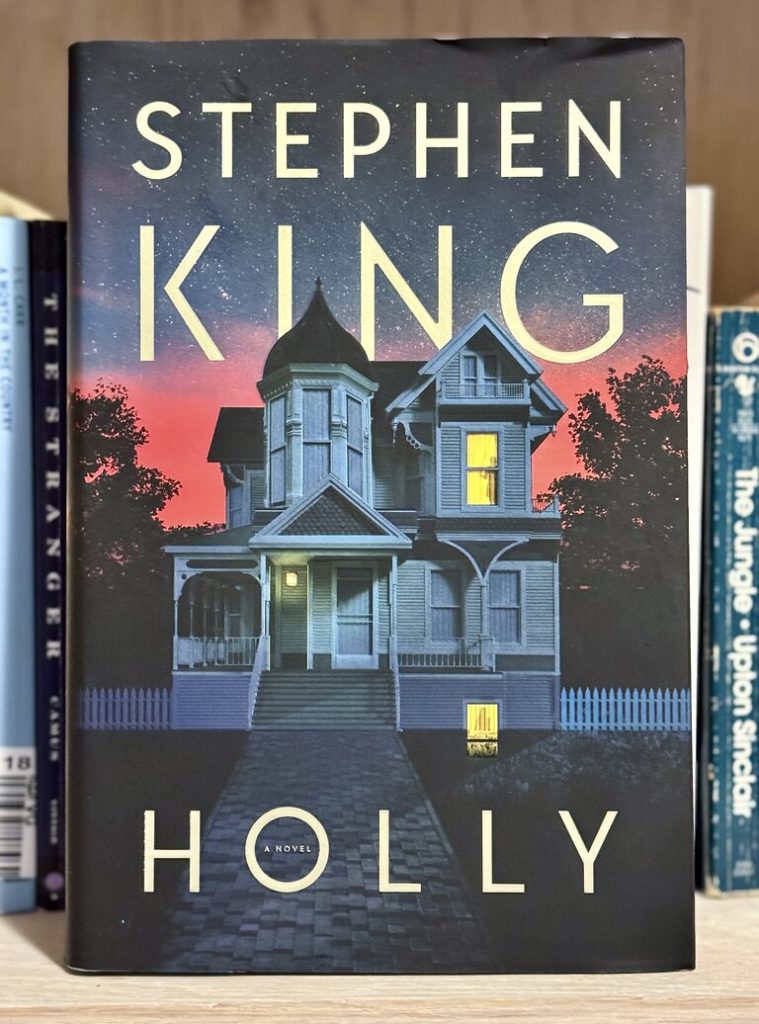
Holly Cover When I was younger, Stephen King was the biggest author in the world. Bookstores in my local mall (B.Dalton and Waldenbooks) prominently displayed his new hardcovers. They turned his books into movies. Guy was the “king” of horror.
I never liked horror, though, so I didn’t read or watch any of King’s stories. It wasn’t until I was an adult my wife made me watch The Shining, which I really enjoyed (as well as the book). When I read On Writing (the best book on writing?) I truly became a fan. So when my writing coach suggested I read Holly, I was game.
I enjoyed Holly. Holly is a mystery, sort of… we know who the bad guys are very early. The story is watching Holly, our protagonist, figure everything out. It’s a good page turner. It’s easy to root for Holly and her team of good guys and even easier to hate the bad guys… they are seriously evil and deranged.
Reading Holly, a few things stood out to me. One, King made this an immediately post-COVID lockdown story. Masks, shots, people sick and dying. Covid is a character in the story. It’s an odd choice because it already made it feel dated. An example is people, upon meeting for the first time, discuss whether they are vaccinated. Most of the “bad” people in the story aren’t, while our heroes are. Same with mask wearing, Covid deniers, etc. It’s an interesting choice; on the one hand, it marks a specific period in history. But reading it now, only a year or two later, it feels very dated. And while I agree with the “good guys” on vaccines and masks, making all the bad guys on the denier side comes off heavy-handed.
The other issue is the editing. I remember reading another super-popular author when I was a kid, Tom Clancy. His first bestseller, The Hunt for Red October, was a tight thriller with just enough military tech to make it interesting. His second, Red Storm Rising, was an unnecessarily long and almost unreadable. I distinctly remember my father, who read the book before I did, telling me it was a shame when authors got too big and could ignore their editors. I feel the same way about King’s writing. Characters have the same thoughts or experiences multiple times… I constantly said yes, I know this already. It’s unfortunate because the writing is excellent, and we’re invested in the characters and plot. The “Writers Edition” of The Stand was perhaps the worst example. In fairness, SK, in the intro to the extended version of the book, says the same… but it was laborious to read.
As fun as it is to criticize one of the most successful authors of all time, Holly a good read. Great, memorable characters, tension, and we really feel like we have a good sense of the location where most of the story takes place.
- Book Review: The First Five Minutes of the Apocalypse
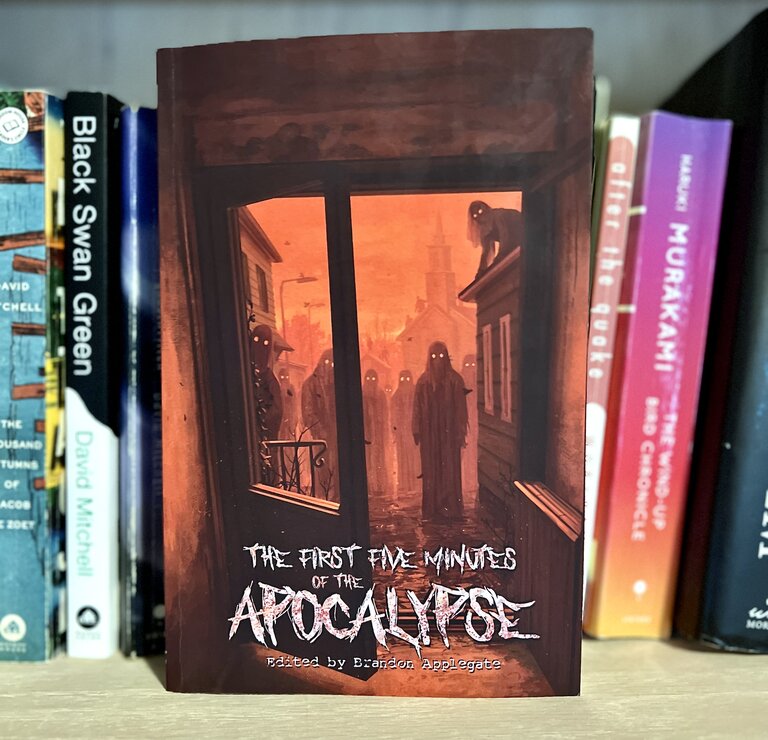
Apocalypse Book I have a personal connection to this book. I came across the following call for submission back in January 2023:
“We want that (apocalypse) story. It doesn’t matter how this thing started, what caused it, or where it came from. That’s not what we’re after. We want the experiences, the points of view, the wild, weird, disgusting, disturbing, beautiful, heartbreaking things that happened at the very beginning of the end of the world.
…
Short horror, weird, dark fiction between 1500 and 4000 words (firm limit) that deal with a fictional apocalypse.
The story must take place within a short period of time (less than a day) at the beginning of a fictional apocalypse. The story shouldn’t be the inception point or the origin of the apocalyptic event. It shouldn’t even be about the event itself. Rather, it should be about when it all started for the POV character(s). Make it personal. Make it weird. Make it disturbing. Make it beautiful. We’re gonna get a lot of zombies, so points for originality.”
Bingo! Right up my alley. I set most of my stories in a post-apocalyptic world. I wrote a story called “Through the Fog”; about 2500 words about a pair of men left alive in their rural town after a purple fog rolls through.
I worked on 2 other contest stories at the time… but was careful to prioritize the stories based on due date. I completed Through the Fog on time but, but, but… never submitted. I don’t know how I neglected to send the entry. Sadly, I didn’t realize this for months. I was actively waiting for a response from the editor, which, of course, never arrived.
After my self-directed anger subsided, I ordered the book. The First Five Minutes of the Apocalypse is from Hungry Shadow Press and edited by Brandon Applegate. I didn’t know what to expect in terms of quality; the press was new to me and the turnaround time from the end of the contest to publication was just a few months. The collection of stories is quite good, and the quality of the storytelling and editing is high.
Each story envisions the apocalypse differently. Disease, aliens, nuclear war, etc. One of the most interesting was Estrangements by D. Matthew Urban; the apocalypse is something that tricks human minds into seeing monsters instead of other humans. The Scream from Andrew Cull is a well-done “classic” PA tale of a family trying to escape a paralyzing agent that captures victims in a hideous muscle-lock, while navigating lawlessness. The Door in the Basement is even weirder.
The collection has recurring themes. Two stories from the POV of animals. Two stories featuring wives very upset with their partners. The recurring theme that hits the hardest is regret. Lost Time by Eoin Murphy is the best example and my favorite story in the collection; facing the end of everything, do you regret how you spent your time? Chasing career advancement in the office on a Saturday?
I enjoyed the collection. It’s an interesting angle to take in the PA space. The stories are the right length and of good quality. I only skipped gave up on two stories, a high hit rate for a collection. Would my story made the collection? Maybe. We’ll never know.
